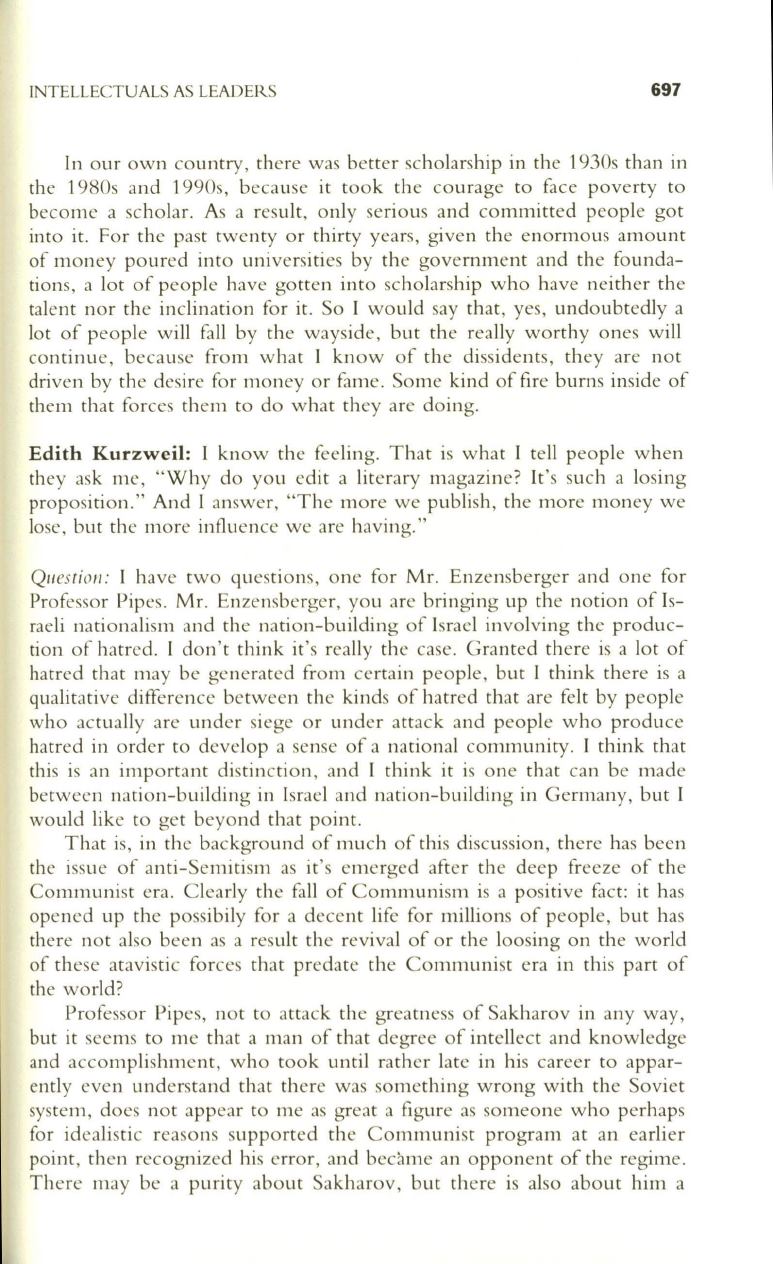
INTELLECTUALS AS LEADERS
697
In
our own country, there was better scholarship in the 1930s than in
the 1980s and 1990s, because it took the courage to face poverty to
become a scholar. As a result, only serious and committed people got
into it. For the past twenty or thirty years, given the enormous amount
of money poured into universities by the government and the founda–
tions, a lot of people have gotten into scholarship who have neither the
talent nor the inclination for it. So I would say that, yes, undoubtedly a
lot of people will fall by the wayside, but the really worthy ones will
continue, because from what I know of the dissidents, they are not
driven by the desire for money or fame. Some kind of fire burns inside of
them that forces them to do what they are doing.
Edith Kurzweil: I
know the feeling. That is what I tell people when
they ask me , "Why do you edit a literary magazine? It's such a losing
proposition." And I answer, "The more we publish, the more money we
lose, but the more influence we are having."
Questio/l:
I have two questions, one for Mr. Enzensberger and one for
Professor Pipes. Mr. Enzensberger, you are bringing up the notion of Is–
raeli nationalism and the nation-building of Israel involving the produc–
tion of hatred. I don't think it's really the case. Granted there is a lot of
hatred that may be generated from certain people, but I think there is a
qualitative difference between the kinds of hatred that are felt by people
who actually are under siege or under attack and people who produce
hatred in order to develop a sense of a national community. I think that
this is an important distinction, and I think it is one that can be made
between nation-building in Israel and nation-building in Germany, but I
would like to get beyond that point.
That is, in the background of much of this discussion, there has been
the issue of anti-Semitism as it's emerged after the deep freeze of the
Communist era. Clearly the fall of Communism is a positive fact: it has
opened up the possibily for a decent life for millions of people, but has
there not also been as a result the revival of or the loosing on the world
of these atavistic forces that predate the Communist era in this part of
the world?
Professor Pipes, not to attack the greatness of Sakharov in any way,
but it seems to me that a man of that degree of intellect and knowledge
and accomplishment, who took until rather late in his career to appar–
ently even understand that there was something wrong with the Soviet
system, does not appear to me as great a figure as someone who perhaps
for idealistic reasons supported the Communist program at an earlier
point, then recognized his error, and became an opponent of the regime.
There may be a purity about Sakharov, but there is also about him a


